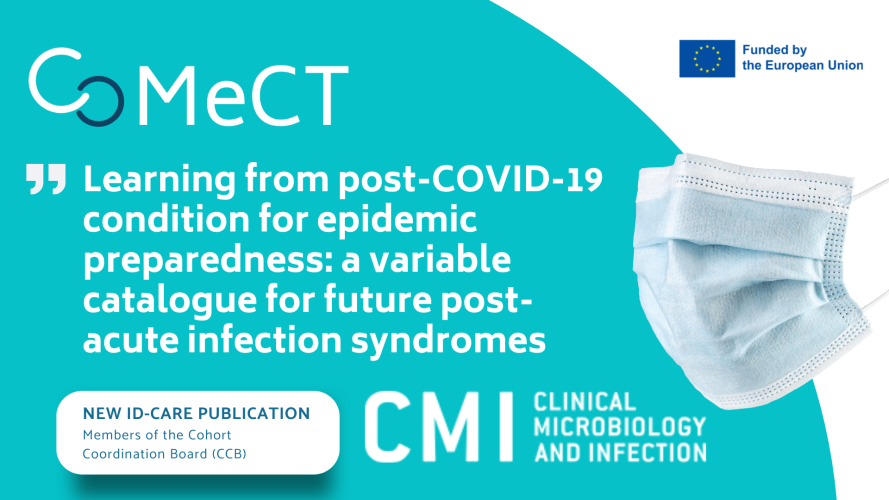New ID-CARE publication - Learning from post-COVID-19 condition for epidemic preparedness: a variable catalogue for future post-acute infection syndromes

A new paper authored by members of the ID-CARE team, in collaboration with other members of the Cohort Coordination Board (CCB), has been published in Clinical Microbiology and Infection. The research focused on insights gained from post-COVID-19 condition (PCC) to improve epidemic preparedness for future post-acute infection syndromes (PAIS).
Building on the knowledge gained during the COVID-19 pandemic, the authors developed a standardised variable catalogue for future PAIS, incorporating international coding standards such as SNOMED CT and LOINC. Future use of the catalogue by researchers will enhance data collection and harmonisation in line with the FAIR principles of findability, accessibility, interoperability and reusability. Furthermore, the catalogue spans the pre-infection, infection, and post-infection phases and so provides a comprehensive framework for long-term follow-up. Ultimately, it will allow for a more coordinated response to emerging infections and associated PAIS.
Seeing the burden of PCC during and following the COVID-19 pandemic, the impact of PAIS in a future potential pandemic will also be significant. The organisation of research to define and describe PAIS will be vital, and this catalogue can provide a backbone to this future research.
The CCB, coordinated by the ID-CARE team at the University of Verona, is a forum that brings together cohort-based COVID-19 and mpox research projects across Europe alongside representatives from the European Commission, EMA, ECDC and EFPIA. It aims to encourage knowledge-sharing between cohort-based research projects to facilitate partnerships, find solutions to common challenges and reduce overlap between projects. Originally managed under the auspices of the Horizon 2020 ORCHESTRA project, the CCB has since been included into the Horizon Europe VERDI and CoMeCT projects.


